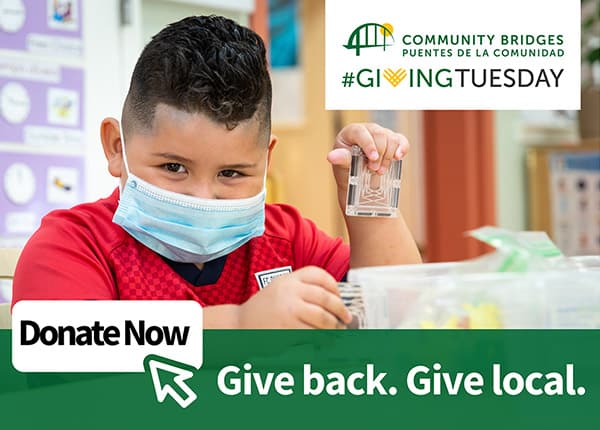July marks the anniversary of the Americans with Disabilities Act (ADA)—a landmark civil rights law signed on July 26, 1990, that prohibits discrimination against individuals with disabilities in all areas of public life, including transportation. As we commemorate this milestone, we’re proud to highlight Lift Line—our paratransit program that brings the ADA’s vision to life every day by helping older adults and people with disabilities stay connected to their community.
For more than three decades, Lift Line has provided essential paratransit services to older adults and people with disabilities throughout Santa Cruz County and parts of North Monterey County. With more than 60,000 free and low-cost rides annually, Lift Line helps riders access doctor’s appointments, grocery stores, banks, social services, and community spaces—ensuring they remain connected to the people and places that matter most.
A Civil Right on Wheels
Before the ADA, many people with disabilities were effectively shut out of public life—including public transportation. Buses lacked wheelchair lifts, sidewalks lacked curb cuts, and transit systems often refused service to those who needed assistance. For decades, disability rights advocates fought for change, organizing sit-ins, filing lawsuits, and staging powerful public demonstrations—like the 1990 Capitol Crawl, where activists left their wheelchairs behind and crawled up the steps of the U.S. Capitol to demand equal access and civil rights.
Their tireless advocacy led to the signing of the ADA. One of the most impactful provisions of the law was the requirement for public transit agencies to provide complementary paratransit services for individuals who cannot use fixed-route systems due to a disability.
Lift Line carries this vision forward, continually expanding its services to meet the evolving needs of our community. Riders can easily schedule door-to-door transportation by phone or through our online portal. Our fleet is fully accessible for individuals using wheelchairs, walkers, or other mobility aids, and every driver is trained to provide compassionate, respectful assistance at every step of the journey.
More Than a Ride: A Lifeline
Research supports what riders have long known: paratransit is worth far more than the sum of its parts. A peer-reviewed study titled “What is Paratransit Worth?” explored the perceived value of these services among users, and the results were striking. Many respondents indicated that they would be willing to pay significantly more than the actual fare—often two to three times as much—because of the essential role paratransit plays in their daily lives.
The study found that paratransit is not just a transportation option—it’s often the only viable way for people with disabilities to access medical care, pharmacies, grocery stores, or even maintain social connections. Without it, many riders said they would miss critical appointments, lose independence, or become isolated. The value of these services wasn’t merely financial; it was measured in dignity, autonomy, and well-being.
Researchers also noted that while fixed-route public transit systems are typically measured by efficiency or ridership numbers, paratransit’s true worth lies in the lives it keeps connected. By enabling access to healthcare, food, and community, paratransit reduces broader societal costs related to emergency care, institutionalization, and social services.
In short, the study affirms what Lift Line riders tell us every day: accessible transportation isn’t a luxury—it’s a lifeline.
Continuing the Journey
As our region’s population ages and the need for equitable, accessible transportation grows, Lift Line stands ready to meet the moment. Whether it’s helping a senior get to dialysis or ensuring a wheelchair user can reach the farmer’s market, Lift Line keeps our community connected.
But programs like this don’t run on good intentions alone. Public investment, community support, and continued advocacy are essential to ensuring that paratransit services not only survive, but thrive.
This ADA anniversary, we invite you to celebrate progress—and commit to the work that remains.
Support accessible transportation today.



